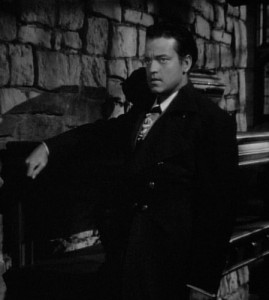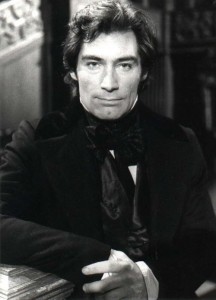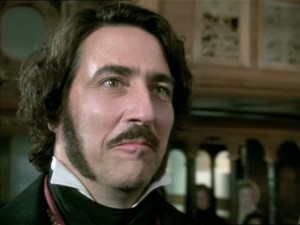You have no items in your cart. Want to get some nice things?
Go shoppingFor Brontë-enthusiasts, there are mixed emotions whenever a new screen adaptation of Jane Eyre is announced. I find myself torn between feelings of genuine excitement and those of sneering scepticism. I also feel mildly frustrated that, yet again, film-makers have decided to impose their vision on Charlotte Brontë’s most famous novel, favouring it over the works of her sisters, as well as Charlotte’s own, lesser-known work. (Surely, it’s time someone was brave enough to take on the far more complex but, in my opinion, far superior Villette!)
Fellow Brontë-philes will not blame me for expressing my weariness over the choice of adapting ‘Jane Eyre’ – since the 20thCentury began, there have been 49 films worldwide inspired by the novel, as well as 51 theatre productions, 22 radio programmes and even eight musicals, all based on the life and experiences of “poor, obscure, plain and little” Jane. I remain, however, a true Brontë fan and so I’ve every intention of putting my doubts to one side, making a pilgrimage to the cinema and watching another version of my favourite book on the big screen.
The real success of literary filmic adaptations lies in the characterisation and the all-important casting. In Jane Eyre, although Jane is the eponymous heroine , and indeed, this latest 2011 adaptation apparently keeps her the focus of the film, for me, and I suspect for most red-blooded females, the character in whom we are all really interested is Edward Fairfax Rochester.
Rochester is a complicated character for any actor to play. The book describes him as moody, sardonic, openly rude, prone to violent fits of temper and yet charming, playful and capable of great benevolence. Physically, he’s no looker (although I’d choose him over that milksop Darcy anyday), with dark, grim features “more remarkable for character than beauty”, undeniably an “ugly man”. One cannot play him too dark or intimidating as he needs to appeal to both Jane and the viewer and yet play him ‘soft’ and the whole story is ruined.
Fassbender’s interpretation sounds promising, but what about his predecessors? Who has triumphed as Brontë’s Byronic hero and who has missed the point? Well, I can offer my humble opinion as a girl who has read, seen and adored Jane Eyre since I was 12 years old. Perhaps you disagree with me, but below I’ve included a list of those I think are the most notable Rochesters on film or TV.
Orson Welles (Jane Eyre, 1944)
Overall: Welles certainly takes his role as Rochester seriously, storming about the set with a thunderous look, intimidating Jane with his rapid movements and loud, booming voice. In true Welles fashion, he dominates every scene he is in but it’s all too much – he totally overpowers Joan Fontaine’s meek and placid Jane.
The Good: The anger, the frustration. Welles combines Rochester’s flair for the dramatic with undercurrents of desperation and insecurity.
The Bad: Lack of believable chemistry between Jane and Rochester, due to Welles’ ferociousness coupled with Fontaine’s gentilesse. The clumsy, sometimes awful dialogue – Rochester even utters the line “Moral of that is, don’t eat toasted cheese for supper”. Ultimately, Welles’ Rochester just doesn’t show enough redeeming features for us to fall in love with him – he’s unlikeable!
The Ugly: Physically, Welles is a good height to play Rochester and he has wild, dark eyes like I would imagine for Rochester.
Timothy Dalton (Jane Eyre 1983)
Overall: Perhaps my favourite Rochester. Rather like Welles, with Dalton all his emotions can be found in his eyes, but they twinkle with amusement as well as desperation and rage. He has Rochester’s rich, deep baritone and communicates his thoughtful, intelligent side as well as his tortured soul.
The Good: Excellent chemistry between Rochester and Jane (although Zelah Clarke is too old for the part.) Portrays Rochester’s multi-faceted personality well, making him attractive and yet desperate, wild and unrestrainedly passionate. The scenes after the discovery that Rochester is still married to Bertha and tries to explain himself to Jane are memorable.
The Bad and The Ugly: Although he is tall, dark and cuts an imposing masculine figure, Timothy Dalton is frankly too good-looking to play Rochester. As viewers, we can’t believe it when Jane declares she doesn’t think him handsome. Forget Bertha – Jane, you must be mad!
Ciaran Hinds (Jane Eyre 1997)
Overall: Although praising Dalton’s unrestrained passion, Ciaran Hinds goes too far. He is over the top emotionally and ultimately comes across as a bit of a bully. Furthermore, he shouts and pants too much for my liking.
The Good: Better an over-the-top, dramatic Rochester, I suppose, than a restrained and bland one.
The Bad: Rochester seems churlish, snarling and cruel. The ‘love’ he has for Jane seems mere lust. He is unlikeable and, if I were Jane, I would have run a mile as soon as he started yelling (which is very early in the film.)
The Ugly: Not quite tall enough. Also, in my mind, Rochester never had such a silly moustache and bouffant hair.
Toby Stephens (Jane Eyre 2006)
Overall: Charming, witty, urbane but with a secret – it’s very easy for viewers to fall for Toby Stephen’s Rochester. The mind games he plays are excellent but he is too good – he doesn’t bring out the tormented, sadistic side of Rochester. He’s simply too clever, too charming.
The Good: Appealing, entertaining portrayal of Rochester. Great chemistry between the main actors and much sexual tension.
The Bad: Not moody or mean enough.
The Ugly: Although they made red-haired Stephens wear a dark, tangled wig, he is, yet again, far, far too good-looking to play Rochester. And too short.








